

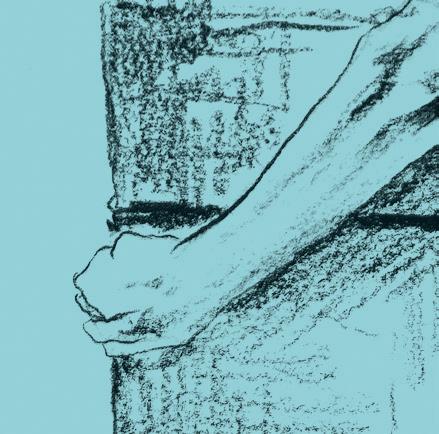




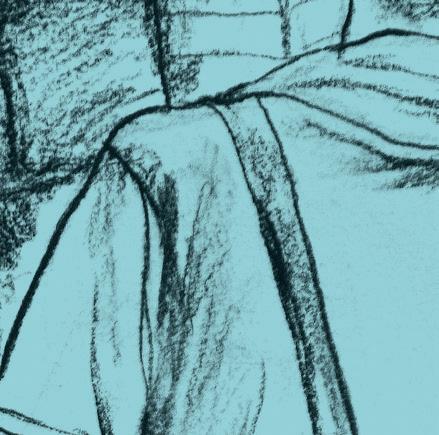
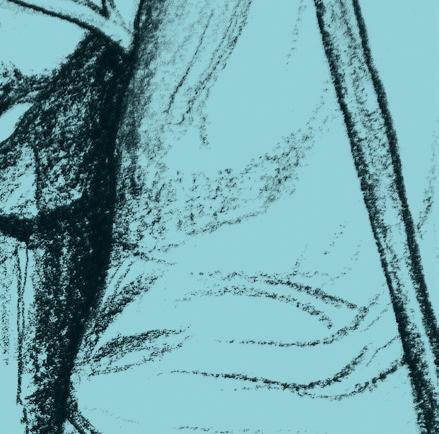
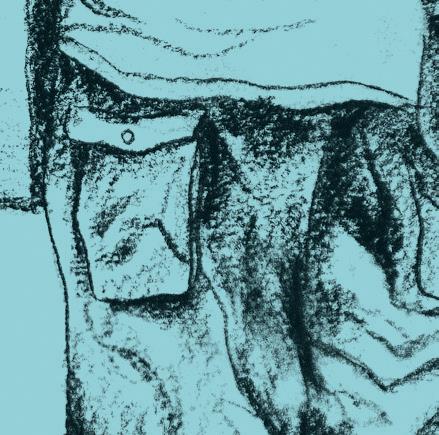






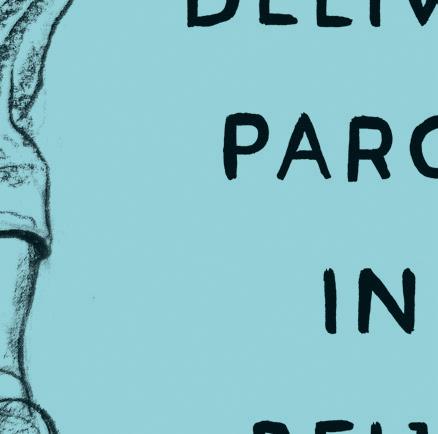




































UK | USA | Canada | Ireland | Australia
India | New Zealand | South Africa
Allen Lane is part of the Penguin Random House group of companies whose addresses can be found at global.penguinrandomhouse.com.
Penguin Random House UK
One Embassy Gardens, 8 Viaduct Gardens, London SW11 7BW penguin.co.uk
Originally published as Wo Zai Beijing Song Kuadi by Shanghai Insight Media Co., Ltd
This translation first published in the United States by Astra Publishing House 2025 First published in Great Britain by Allen Lane 2025 001
Copyright © Hu Anyan, 2022
Translation copyright © Jack Hargreaves, 2025
The moral right of the author has been asserted
Penguin Random House values and supports copyright. Copyright fuels creativity, encourages diverse voices, promotes freedom of expression and supports a vibrant culture. Thank you for purchasing an authorized edition of this book and for respecting intellectual property laws by not reproducing, scanning or distributing any part of it by any means without permission. You are supporting authors and enabling Penguin Random House to continue to publish books for everyone. No part of this book may be used or reproduced in any manner for the purpose of training artificial intelligence technologies or systems. In accordance with Article 4(3) of the DSM Directive 2019/790, Penguin Random House expressly reserves this work from the text and data mining exception.
Printed and bound in Great Britain by Clays Ltd, Elcograf S.p.A.
The authorized representative in the EEA is Penguin Random House Ireland, Morrison Chambers, 32 Nassau Street, Dublin D 02 YH 68
A CIP catalogue record for this book is available from the British Library
ISBN : 978–0–241–73382–0
Penguin Random House is committed to a sustainable future for our business, our readers and our planet. This book is made from Forest Stewardship Council® certified paper.
“Hard work” can mean many different things. A job might be technically or physically hard to do. One can work hard at something—to learn a skill, to improve in a certain way, or to make amends. A colleague might feel a lot like hard work. Hu Anyan shares his own experiences with all kinds of hard work in his candid, searching memoir, which traces his changing relationship to labor and creativity, as he learns how to make space for both to coexist in his life. The struggles and realizations he has along the way feel familiar to me as a translator, despite my work being a far cry from that of a delivery guy or parcel sorter.
I’d like to briefly explain a few aspects of this translated text, to give some insight into why this version of Hu’s memoir reads the way it does. This translation is based on one Mandarin Chinese version of the book—there are a few in total—and includes short passages written exclusively for the English publication. Any other slight deviations from the Chinese editions are the result of editorial choices made in the interest of rhythmic and narrative flow.
A term that is repeated in the book and does not really evoke in English an accurate idea of the city spaces that comprise
xii Hu Anyan
Hu’s delivery rounds is “neighborhood.” These residential developments, known in Chinese as xiaoqu (lit. “small district”), are walled, often gated communities that contain groups of six-story walk-ups or, in newer complexes, possibly tens of high-rise apartment buildings each housing thousands of people. These neighborhoods sometimes verge on being separate ecosystems, with little gardens, playgrounds and schools for children, stores and restaurants, clinics.
Here I will address the system of naming that I used for them in the book, if I can call it a “system” at all, since the approach is fairly unscientific and inconsistent. Any of the neighborhoods, with an existing English translation I could locate online, are given those same names here. For the rest, I had three considerations in mind: 1) readers unfamiliar with Chinese might struggle to parse and pronounce long strands or dense clusters of pinyin, the official phonetic romanization for Chinese characters; 2) keeping some remnant of the Chinese names in the English translations should create a stronger sense of place than otherwise and also means that readers who know Chinese and, in particular know Beijing well, might be able to better situate the story; 3) the language of real estate can be quite bombastic and ostentatious when it wants to be, so why shouldn’t these translations be, too? I hope the names based on these considerations will feel authentic and realistic to readers.
Isay a year, but really, I was at D Company for just over ten months. I joined on May 12, on the ninth anniversary of the Wenchuan earthquake. My job was package handler at a hub in Shunde District, in Foshan, which at the time was the largest distribution center in the country. I only learned this after I left. Though the scale shocked me while I was there, I never really cared where the warehouse ranked nationally.
The distribution center was in a logistics park along with centers for JD.com, Vipshop, and BEST Express. I worked the night shift, from seven in the evening until seven the next
2 Hu Anyan
morning. I had four days off a month. Almost everyone there worked nights, since sorting didn’t happen during the day. The basic requirement for the job was to be able to read the addresses on labels. Nobody ever asked to see my diploma, but for sure there were people from back home that this would have disqualified.
The interview was a mere formality; the reality was they wouldn’t turn anyone away who was willing to complete a three- day unpaid trial. This must have violated labor laws, but I asked around and apparently all the enterprises in the logistics park operated the same way. If you couldn’t accept it, you had to look for work elsewhere.
Practically speaking, the trial was kind of necessary. A lot of fi rst timers would other wise not have known where to start. It was a chance for employer and employee to come to a mutual understanding. So far as I could tell, it also tended to cut numbers by more than half. Some people stuck it out for barely two hours before giving up. So, the least the company could have done was compensate anyone who still reported for duty after those three days.
The company wasn’t devoid of humanity, though: Many people who moved to the area specially for work brought very little with them, so the employer made sure to grant half a month’s salary at the end of the fi rst twenty days for them to buy essentials. Other wise, payday wasn’t until the fi fteenth of the following month.
The transfer center resembled a large pier. We worked on a yard-high cement platform, which we called the sorting floor. It was the length of eight, maybe ten, soccer fields and had an enormous steel roof overhead. All along both sides of it, there were loading and unloading docks, each of them numbered, and row upon row of trucks parked with their rears to the platform and their cargo doors open. I was welcomed onto the sorting floor each evening by a constant rumbling sound, low and heavy, like distant thunder: the sound of a hundred-plus forklifts rolling across the ground in unison. These forklifts were like worker ants unloading huge sacks of packages from trucks for delivery to the various sorting teams and carrying the sorted cargo to the corresponding loading dock.
I was assigned to a “small items” team, whose job it was to sort and repack parcels, as they arrived, according to destination. I mostly enjoyed the work: There was no need for talking, no need to use my brain, I just rolled up my sleeves and got on with it.
Since this was Guangdong, summer lasted for three- quarters of the year. In the day, the sun baked down on the metal roof until it was scorching hot, and the evenings were not that much cooler. Often, sweat was dripping down my back within the fi rst two hours of a shift and would not stop dripping until the next morning. I eventually bought a three-liter flask for water that I fi nished every night, but I sweated so much I never once needed to pee while on shift.
4 Hu Anyan
For my trial I was put on unpacking, the most tiring of the roles. The parcels sent over from the service point arrived in large polypropylene bags that it was our team’s task to open and empty onto the sorting floor, where we organized and rebagged them. Unpacking was the tearing-the-bags- openand-tipping- out-the- contents part. The bags varied in weight, with some parcels weighing only several pounds, and the heaviest up to ten times that. If our shifts had been shorter, then I’m sure most people could have coped, but at the end of the night we all eventually started to lag; this was why unpacking was the one job that women weren’t allowed to do.
In fact, it was a compulsory part of the training for every man, whereas the women went straight to repacking. It was only by going through the toughest tasks that the company and the candidate could know with enough certainty whether they were a good match, and therefore reduce the likelihood of “breaking up” over a misunderstanding later. Those few days of the trial period really were the hardest, since the body hadn’t adjusted to the new work and its intensity yet. Unfamiliar movement causes extra fatigue anyway, which was partly why so many people called it after only a couple hours. But if you could hang in there long enough, eventually the workload would start to feel more manageable.
I remember an older woman during her trial, she seemed to have no problem with the toil, but left suddenly at midnight. I heard later that she couldn’t read, so the foreman had talked
her into quitting. She can’t have been illiterate, I don’t think, other wise she wouldn’t have managed those fi rst hours without a mistake. She must have recognized some characters and asked team members for help with the rest, which will have put enough fear into her teammates that they decided to tell the foreman. She only had to mislabel one bag and all those parcels would have been sent to the wrong city, and everybody in the team would have had money docked from their pay.
We worked twelve hours every day, with a half-hour break for dinner, starting from nine, after we’d been there for two hours already. Then from ten in the evening until five in the morning was nonstop grind, followed by the slower fi nal couple hours of the shift.
The yard had two canteens run by two different contractors, each selling different styles of food. We spooned out the dishes ourselves, like it was self- service, and paid according to weight. But there was unlimited free rice. Anyone wanting to save money fi lled up on bowls of it and had only a little of the other dishes. The prices were reasonable, in all fairness, and the canteens were mostly clean. After eating, we worked nine and a half hours altogether without a snack break. Some people brought in their own bread or crackers and scarfed them in a spare moment around midnight. Others had gotten used to not eating at all for ten hours straight. I would take in crackers myself, and on the days I forgot to, I could hear my stomach grumble.
Hu Anyan
I remember my fi rst night there. No one told me the schedule, so I had dinner before turning up. When nine o’clock came around and everybody went to eat, I had no appetite and skipped the chance for a substantial meal, assuming there would be food later on. Little did I know I’d have to keep going for the next half night with only water to fuel me. By the end of the shift, I was so hungry my head was spinning. Weight loss was par for the course for new workers. I had one colleague who joined a few days after me and dropped from 180 pounds to 130 in only three months. I wasn’t exactly fat before starting, but some months in I’d lost a dozen pounds.
I soon discovered that most people who worked there weren’t big talkers or there to make friends. They reminded me of quiet old farmers— even if they weren’t very old— they just had the same indifferent, guarded way about them with strangers. Happily, I’m not a fan of chitchat either, so everyone working with their mouths shut was fi ne by me, I felt comfortable in that environment. But when I asked for guidance, they always giggled shyly before awkwardly giving an answer— they weren’t arrogant though, just quiet types.
We had a regular meeting every morning before clocking off, when the foremen and manager summed up the night’s work and any issues that had come up. They spoke for three minutes, if that. There was also a brief huddle before the shift started, for setting priorities or discussing any matters that
I Deliver Parcels in Beijing 7
needed attention. It was tedious, but over quickly. I normally didn’t listen. After all, talk does not a revolution make.
When I completed my trial, an assistant foreman, a short guy, pulled me aside for a chat. Our team had one main and three assistant foremen then, and above all of them a manager in charge of admin. This guy told me that although the probationary period wasn’t paid, he would make it up by giving me three extra days of vacation. This was back when we didn’t need to punch in. I was pleased to hear this, of course. But it wasn’t even a month before the same guy had a dispute with the other foremen and quit. No one mentioned those paid days off ever again.
D Company had its core business in logistics, but in 2013 it had also rolled out an express delivery service that hadn’t developed like hoped, and when I joined in 2017 it only had a negligible share of the market. Unfortunately, this did not translate to an easier time for those of us who handled its parcels. Staffi ng had a direct correlation with workload, and capitalists aren’t known for sympathizing with slackers.
In my fi rst months there, I rotated between unpacking and packing. There were four roles in our team: The unpackers worked in sync with labeling, and shelving worked alongside packing. The unpackers emptied the giant sacks of parcels onto the sorting floor and the labelers scanned the barcodes on the order form, writing the destination postal code for each parcel
8 Hu Anyan
on its front in pen. Then the marked parcels were passed down the line into the packing area, where the shelvers put them into the various shelves based on destination. The packers would then bag each shelf of parcels individually and carry the labeled bags onto the forklift to be taken to the loading bay. In terms of intensity, labeling was the lightest work and was often done by women.
At the end of the shift, everyone went to eat breakfast. To us, this was really our dinner, the second of the two meals we had each day. Then we returned to our dorms to wash ourselves and our clothes. The uniform proved impossible to ever get fully clean. We lifted and moved goods for hours on end— grease and oil stains were inevitable. Plus, it was easy to convince ourselves when we were already tired that we didn’t need to make sure our clothes were pristine. They were only going to get dirty again the next day. With good- quality stain remover the price it was, if we did attempt to clean them, we settled for a bar of soap. But this wouldn’t get rid of the strong odor of sweat that lingered even after air- drying. Doing this type of work though, people naturally stopped caring.
Anyway, it was sleep that caused the most problems— not everyone adapted well to the upside- down schedule. My fi rst few months there, I would be too exhausted to function by four or five o’clock every morning. If I only lay down, I would nod
I Deliver Parcels in Beijing 9 off in seconds; and if lying down wasn’t possible, then I might still drop off at any moment. Sometimes, I would black out as if I was about to lose consciousness before jolting awake again, instantly, and grabbing at whatever was nearby to hold me upright. I was like the walking dead— a thousand-yard stare and a foggy mind, and no idea what I had been doing only a second earlier. I mixed up two labels when I was in this state: stuck a Beijing label on a package meant for Chongqing, and the Chongqing label on the Beijing package. Luckily, the mistake was spotted, and the parcels were brought back before they had been loaded onto the trucks. I’m not exaggerating when I say that every shift, when the lack of sleep had me up against a wall, I used to swear to myself that I was going to hit the hay immediately after work, regardless of what else needed my attention. Except that by the time I got off in the morning, the fatigue had always passed, and I suddenly had my energy back. It always came with a strange sense of restlessness as well, like I had labored for so long in a way my body didn’t like that it now craved an activity it enjoyed; I had to shake off the lethargy and replenish my being and my strength. A lot of colleagues went to karaoke after their shift for this very reason, and they stayed there until it started to get dark again, squeezing in only an hour or two of sleep before work. But that was wild to me; I didn’t want to lose my life to work. My approach was to try to be kind with myself. Like I would eat an extra-good breakfast or go for a stroll around the supermarket in town. It
10 Hu Anyan
was only a small supermarket, with a limited selection, but I found that walking up and down the aisles relieved stress, even if all I bought in the end was one or two things.
The trouble was that I still didn’t feel like sleeping afterward. And I couldn’t, anyway, even if I tried. By the afternoon, I would start worrying about getting no rest once again. The room I stayed in when I fi rst started was hot and stuffy. In summer, the temperature inside could get up to ninety degrees. The walls were scalding hot from the sun, and my fan didn’t make a dent. I was renting a room without AC, to save money, even though an upgrade only cost fi fty yuan more. It must have been early August when I decided I couldn’t take it any longer. I felt like I was cooking to death. I contacted the landlady to ask if I could change rooms. But in what world would there be a room with air conditioning going free in summer? The landlady, though, kept up the pretense that there would be one available soon. She strung me out like this for two months, past the mid-Autumn festival, then fi nally got in touch with an offer. The weather was cooler by then, but it was still uncomfortable; October in Guangdong can mean temperatures in the eighties. I jumped at the chance, only to use the AC a total of three or four times, maximum, before the heat started to ease off.
Noise was another factor in my strug gle to get to sleep. The block where my room was didn’t have a call system at the main door. Any visitors therefore had two choices: either call the person they were coming to see on their cell, so they would
I Deliver Parcels in Beijing 11
come down and open the door, or stand outside and shout up. The hollering never failed to make me want to run downstairs and throttle whoever just woke me.
My room had thin walls, too, and I overheard the neighbors arguing once. The husband was shouting at the wife. There was a lot of name- calling and yelling, but the wife didn’t say a word the whole time. Maybe she was the one in the wrong. The husband shouted that when he came back from such a hard shift, all he wanted was to get a good sleep, but even that he couldn’t do . . . I guess something the wife had done had upset him. Then he started to cry— a grown man crying and yelling. I’m not immune to gossip, so I tried to listen for any hint as to what the wife had done. But I could only understand very little of what he said. We were people from all over the country in that place, and we each had our own accents, some of them foreign to me.
For all that though, I still had trouble sleeping even when it was quiet out and a more bearable temperature. I’d tried everything that might help. Sleeping pills I couldn’t fi nd, but I had heard that dark chocolate worked almost the same, so I dosed it like it was medicine— a square before bed every night— but this did nothing, of course. I also went for melatonin, with absolutely no effect. In the end I had to resort to the tried-andtrue method of drinking. The supermarket sold a range of erguotou sorghum liquor in four-liter bottles. The Red Star stuff was too expensive, so I just bought the knockoff brands.
12 Hu Anyan
Most of them were produced in Sichuan (rather than Beijing), and they went down nowhere near as cleanly as the kind I was used to. They were almost pungent. But they were cheap, and that’s what counted. With my self-imposed budget, I could also stretch to something of slightly better quality on occasion. Five hundred milliliters of Old Village, at eighteen yuan a bottle, was the best I could fi nd at that price.
While I drank, I liked to read, though I never had any memory of what I’d read afterward. Sometimes it took as much as four ounces of spirits before I felt ready to lie down. The goal was to be asleep before 2 P.M., so I could be up by half past six; maybe when I managed that, I would rejoice.
On the awful days when I was still awake past four, my anxiety went through the roof. Before I started at D Company, I used to sleep seven hours a day; but working nights, I averaged four.
The big problem with the drinking was that I would still be tipsy when I woke up. Fortunately, I walked to work. I felt every dip and bump underfoot, as I went, though I couldn’t say if it was me that was swaying or the world. When I drank less, it was like I hadn’t had any rest at all. I passed by a row of houses on my way in every day. I could smell the cooking going on inside, see the people collapsed on their couches, tired and content after a day’s work. That, to me, was what true happiness
I Deliver Parcels in Beijing 13
looked like. Meanwhile I was already more exhausted than those people, and I hadn’t even reached the warehouse. I cursed myself in those moments: My damned body cursed my willpower, and my damned willpower cursed it back. I swore I would go right to sleep when I clocked off in the morning. But then the morning came around, and every thing went the same as the day before. I was trapped in a loop.
I should say something about where I was staying at the time. It was in a village called Luoheng that was separated from the logistics park by a small stream. The logistics park was a development zone that had no perimeter fence or security gate. Vehicles and people could come and go as they pleased. But Luoheng was closed off by the stream on one side and a gate, which was shut at ten every evening, on the other. This seemed strange to me, at fi rst. Why would a village need to be isolated like that? I hadn’t come across it before. Later, I learned that Luoheng’s main industry was ornamental plants, every thing from exquisite bonsai to tall, lush trees for lining avenues. Some of the plants must have been valuable, so the locals wanted to protect them against theft. Even just for my walk to and from work, I had to hop a barbed wire fence. One day, when it was raining and I had an umbrella with me, I slipped when I was climbing over and slapped my right hand down on a spike. I still have the scar today.
14 Hu Anyan
The villagers in Luoheng all shared a surname, Yun. Based on the couplets pasted up outside their ancestral halls, I understood that their families had moved there from Longzhong when China still had dynasties. The village was originally called Luokeng— this I discovered when I came across the discarded plaque of an old house. Changing the village’s name from one that included the word for “pit” to one that suggested “luck” or “prosperity” felt dishonest somehow. But I can appreciate the locals thinking that calling their hometown a pit might hurt trade. Imagine you’re a small business owner in the Pearl River Delta wanting to spruce up your office with some lucky bamboo; plants from Luoheng Village are going to be much more appealing than those from Luokeng.
The thing was, living in Luoheng was inconvenient. There wasn’t a supermarket there, or a hairdresser, or restaurant, just two convenience stores that had a small range of products. Most of my colleagues stayed in Shizhou, a bigger town nearby. It took half an hour to walk there, a trip I made every second or third day to do the groceries. Shizhou had a vegetable market, a small park, a basketball court, a midsize supermarket, and several stores. There were also a lot of small eateries and rooms for rent, and some street food stalls that opened in the evening for barbecue and mini hotpot. But I liked the quiet, so Luoheng still suited me better. Plus, rent was slightly cheaper. My room, for example, was four hundred yuan for the month, but the same room would have cost five hundred in Shizhou.
None of us really shopped online while living in Luoheng, even though you could buy anything you could think of on the internet, and for less expensive than other wise. Delivery drivers just refused to come to our doors, or even enter the village. They stopped at the gate and rang our cells, so we’d go out and meet them. It took ten minutes to walk from my building to the gate, and there was no way to tell what time a courier might show up. Daytime rest being so precious and fragile, I preferred not to risk a phone call, in case sleep eluded me afterward. So, I made do with what I could fi nd in Shizhou, instead. Luckily, this often meant getting a lot for my money, like the Triangle brand kettle I bought for only twenty-nine yuan and left behind when I moved. Anything pricier wouldn’t fi nd a buyer in Shizhou.
The D Company warehouse epitomized the old saying about a sturdy barracks through which soldiers readily flow. Basically, people tended not to stick around for very long, so the company was always hiring. When I had just joined, it was offering a three-hundred-yuan commission if you could refer someone. This later became five hundred— then eight hundred— and jumped to one thousand yuan in the runup to the Singles’ Day sales on November 11. I earned five hundred by referring a friend to the sales office for a courier job. But I didn’t take a single fen; I gave it all to him. Only, he hadn’t been working for two months when he quit, saying he was overtired.
16 Hu Anyan
Stuck up in the sorting-floor restrooms, next to the hot water machines, and over the sinks were color HR posters that shared employees’ stories about their time at work. I still remember a few of them now. One was from someone who had been on the sorting floor for several years before leaving to start his own business. Let’s call him Wang because I’ve obviously forgotten his name. He then lost all his money and came back. Now he was saying that it was good to work with your hands, and that the company had looked after him . . . The quote ran next to a photo portrait. He looked to be doing okay in the picture, flashing a happy and contented smile at the camera. There were lots of others with similar experiences to Wang who were displayed for us to look at while we urinated, washed our hands, or fi lled our bottles.
As well as concocting posters, HR personnel got out on the front line themselves, setting up stalls on street corners in Shizhou, pinning up Now Hiring flyers and posting ads on apps. They were tireless, trying every avenue under the sun. They didn’t much care who answered their call: Applicants were sent straight to the sorting floor for a trial. HR had its own KPI targets to meet, after all. This probably accounted for the fair number of hopefuls on trial who clearly weren’t a good fit.
One girl who arrived one evening, with spindly limbs and a small frame, did not look at all cut out for manual labor. But she was still assigned to the sorting floor, and it wasn’t like we could send her back to HR or pass her off onto another team.
We just had to let her try. The foreman, though, was reluctant to hire anyone who might be slow, since they threatened the productivity of the whole team. Plus, they usually left after only a month or two when the work proved too tough. It was pointless bringing her in. During her trial, the team leader specifically warned us not to help her.
Like I mentioned previously, the trial was the hardest toil anyone would ever do there, and that was only the start of a long week or two for people unaccustomed to heavy lifting. Those in bad shape could forget about acclimatizing, entirely. The frailer a person, the less we were supposed to support them— we didn’t want to give anyone the false belief that they could manage. So, we had to put her through the wringer, and if she still stayed, then so be it. The other side of the coin was that we were encouraged to help those who looked strong as much as we wanted.
During my own trial, I strug gled to crack the technique for emptying the large polypropylene bags of parcels quickly. I could fl ip them okay, but I was using my index fi ngers like hooks to yank and shake the material from over the parcels, instead of simply pinching the bag’s tail between forefi nger and thumb, and pulling. It felt fi ne at fi rst doing it my way, there was no pain, but after three nights of handling the bags like this, the nails on both my index fi ngers were bent backward. They turned black some days later and eventually fell off. It was almost three months before they grew back.
18 Hu Anyan
All of this said, we did have some people with disabilities working with us. Government policy required that every company hired a proportional number. D Company had apparently failed to meet the quota in the past and been fi ned a large sum. They were good workers, though. In a few roles, there was no telling the difference between them and the rest of us. Some disabilities just hindered people from switching to other posts. Anyone with a limp, for example, couldn’t do unpacking or packing, because of all the walking back and forth those jobs required— I wore through a pair of brand-new Decathlon sneakers in four months. This inevitably complicated things for the foreman when it came to drawing up the schedule, so he didn’t like them on the team, and he sometimes made this known.
In any team, there is always someone who is excluded, and ours was no exception. For us, it was a nineteen-year- old woman straight out of school. She was younger than most of us, slight of build, and neither quick nor strong. She might even have been a little slow. She often held back the line, forcing others to help her and sometimes to pause the conveyor belt. She was also quite odd, and got along with nobody particularly well. Pretty much everyone disliked her, actually: They gave her ugly nicknames, made fun of her to her face, and criticized her. If that had been me, I would have immediately dropped out. But
she was clearly the more resilient of the two of us, or the more numb, and cared less about what people thought. Either way, she stayed on for a long time, way longer than I had expected. I was as friendly with her as I could be, given her situation. The one time she was pushed to crying in anger, she ran off in the middle of the shift, saying she wasn’t doing it anymore. The foreman sighed with relief. He had been trying to swap out all the low- efficiency workers, but this young woman had been insistent that she wanted to persevere. The foreman could do nothing. Two days later, she told him that she wanted to come back and he, of course, refused. Her boyfriend, who also worked on the sorting floor in loading, brought her over to ask nicely, and the three of them debated it for a long time: All of us who worked at the company saw each other whether we wanted to or not, and we were all workers; what was the good in being so hard on one another? The foreman eventually gave in, and the woman returned to our ranks, and to the constant torment.
Some days after I joined, I was followed by another newcomer. On his fi rst day the foreman made me show him the canteen, and the guy clung to me every day after that. He wanted to arrange meeting somewhere on the way to work, so we could walk in together. He even suggested that we take the same days off and make plans. Luckily, the manager didn’t allow it. Everyone else assumed that we knew each other from before. He made me uncomfortable, to be honest, but I felt
20 Hu Anyan
awkward saying no. He was just being friendly. But he did have a weakness—he loved to brag. He was always going on about how impressive he was, the things he knew how to do, and all the people he had set straight in his life. He could take on six people at once, that kind of thing. I just listened and nodded. I didn’t dare to tell him that I didn’t believe him. I used to wonder how little self- esteem he must have, how hollow he felt, to need to blow his own horn like that all the time. Looking back, I understand him a little better. He and I had accepted offers of work somewhere neither of us knew anyone, at about the same time. We shared many of the same standpoints, concerns, and interests. We would both benefit from being allies. Going it alone in a new environment is risky business. If you’re unlucky, you could end up ostracized like that young woman. He realized all this the very fi rst time we met, whereas I was oblivious. It’s only now that I see what he was trying to do.
There was also a pregnant woman who joined our team. She was referred by her boyfriend who was already a colleague. There had been an HR rule previously that partners couldn’t work together, but the boyfriend must have hidden their relationship at the outset. Once it was a done thing, the foreman could only let her stay. She wasn’t showing when she fi rst arrived. She was in her early twenties, and healthy, and she had no problem completing the tasks. But her bump slowly grew, and it became difficult to watch her work. We went all through